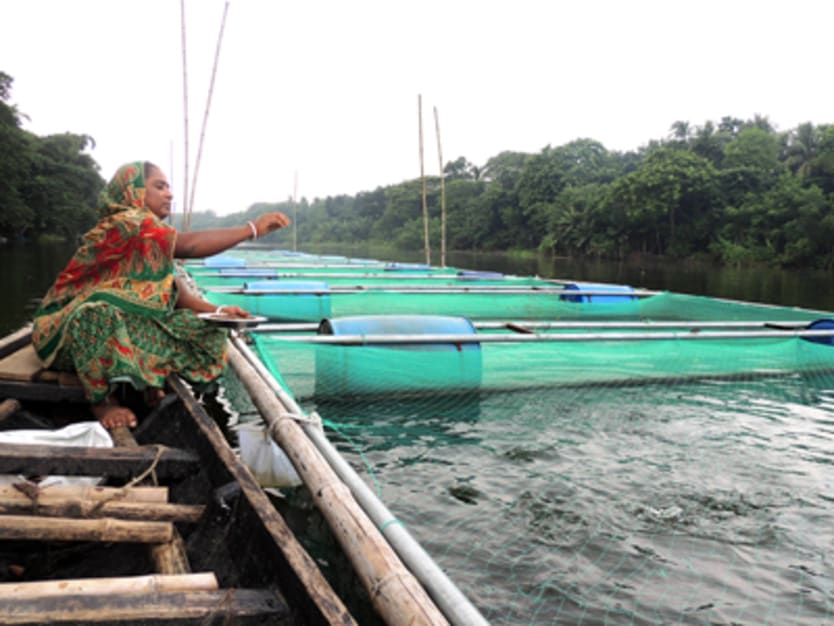
Fisheries policy makers are often chastised for not solving the problems of the global fishing industry — ensuring a constant supply of good-quality, affordable fish for the consumer and a satisfactory standard of living with fair recompense for the millions of fishers bringing home the catch. Why do they continue to get it wrong?
To be fair, they don’t always get everything wrong, but there is significant room for improvement. The U.N. Food and Agriculture Organization estimates that 30 percent of the world’s fish stocks were over-exploited, depleted or recovering in 2009, and that there was a moderately increasing trend in the proportion of exploited stocks. Although experts argue back and forth over the FAO data and their conclusions, few doubt that the current status of global fish stocks, though not calamitous, gives cause for concern. This is especially true for marine stocks in South, East and Southeast Asia.
This might not matter if fish were not so important. But in many of the poorer developing countries, people depend heavily on fish for adequate nutrition. A growing number of studies now show how valuable fish is for providing protein, essential fatty acids, vitamins and minerals.
Fish caught from the wild are the primary source of nutrititon in these countries. Although globally aquaculture is the fastest growing agricultural sector, for most of these developing countries there are no immediate prospects that farmed fish can replace wild caught, or even make up for any immediate losses of local wild fish.
The spotlight returns then to the fisheries policymakers. What policies should they promote to ensure that fisheries provide healthy, nutritious and affordable food to those most in need?
Policy development is complicated by the wide variety of ecological environments, fish stocks and fishing methods, as well as the diversity of livelihood strategies adopted by fishers themselves. There are lake fisheries that undergo seasonal boom and bust cycles, flood plain fisheries, river fisheries, and inshore fisheries. Some provide for local markets, others a combination of local and regional markets. Some require the catch to be dried, others frozen. Some fisheries are highly community-based, others operate through small groups.
Of the approximately 45 million people who fish for a living in the world, many are part-time and use fishing as source of secondary income or a safety net in times of temporary or seasonal hunger or unemployment. This tells us that small-scale fisheries are extremely context-specific, so policies must be tailored individually to fit the local circumstances. A “one-size-fits-all” policy is inherently doomed to failure.
A small, understaffed and underfinanced government fishery department cannot be expected to prepare and implement the breadth of different policies and procedures that will secure each and every local fishery. To help them support their food security objectives they need to partner with development agencies and other stakeholders. In doing so, they should adopt new principles.
In particular, management and decision making should be entrusted to the level where the incentives are greatest for the fishery to provide the broadest possible community benefits. The devolving authority needs to keep political accountability in mind and still maintain regulatory oversight. For delegation of responsibilities to be successful, ensuring that stakeholders are given the authority to carry out management tasks — and the necessary knowledge and skills to discharge their obligations — is also vital.
Rarely has sufficient weight been given to the needs and desires of the fishermen themselves. Until they have a voice in the discussion and their needs and concerns are both recognized and respected, the probability of success for fisheries policies is small. Current environmental and stock-based fisheries data is valuable but needs to be complemented with data that describes the fate of fish once landed. This includes data on processing, marketing, value chains and consumer preferences. Only by considering the whole spectrum from supply to consumption can a complete picture be drawn that can then guide policies that will truly support nutritional security for the poor and vulnerable.
Decisions taken in other areas of government or business have the potential to affect fishermen and fisheries in either a positive or negative manner. Developments in infrastructure, new roads linking fish landing sites to markets, social safety nets, insurance schemes, access to banking and credit, issues of public health and labor market reforms can all have important impacts. This demands that fisheries policy reform be incorporated into the broader spectrum of rural development policy and that fisheries be viewed from a multi-sectoral perspective.
Wild capture fisheries are essential for maintaining nutritional security in many developing countries. Policies based on stock sustainability and economics are missing half the fisheries picture. Placing the needs of people — fisherman, processor and consumer — at the center of the decision making process is essential, especially when fish is a key source of nutrition and well-being for the poor and vulnerable.
Join the Devex communityand gain access to more in-depth analysis, breaking news and business advice — and a host of other services — on international development, humanitarian aid and global health.


